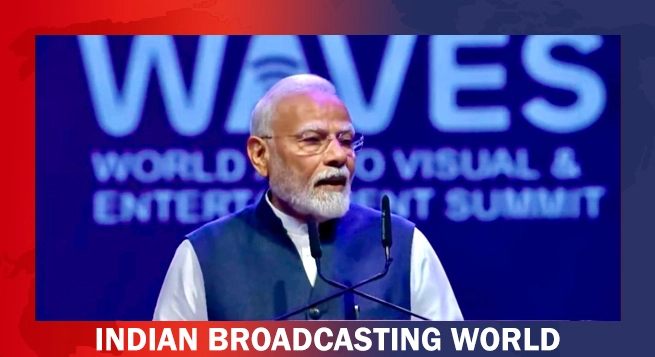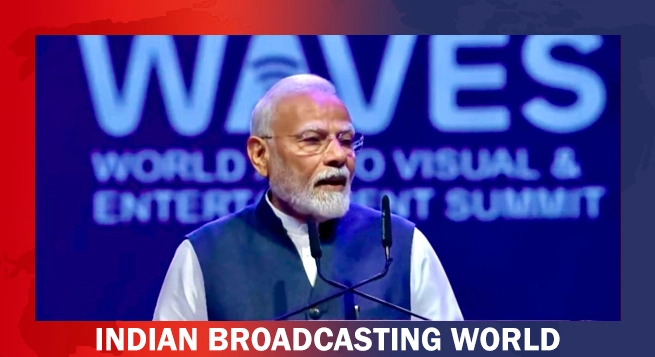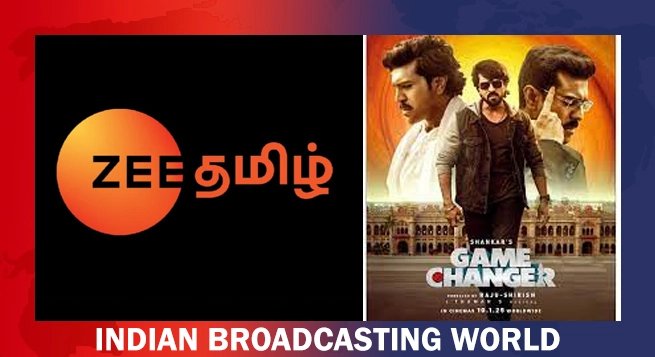India’s federal cabinet yesterday approved a revised implementation strategy of the country’s ambitious digital broadband programme BharatNet through public private partnerships (PPP) in 16 States of the country.
BharatNet will now extend up to all inhabited villages beyond gram panchayats or village administrations in the 16 States. The revised strategy also includes creation, upgradation, operation, maintenance and utilization of BharatNet by the concessionaire who will be selected by a competitive international bidding process.
The estimated maximum viability gap funding approved for the above PPP model is Rs. 19,041 crore, an official statement from the government said.
BharatNet was originally conceived as a project by India’s federal government to digitally connect all the gram panchayats and villages. A combination of wired and wireless technologies and design were being adopted to fulfill the goal.
As of September, 2020, according to media reports, nearly 1.5 150,000 kilometers of optical fibre cable had been laid under the BharatNet Phase 2, covering over 23,000 village administrations. The programme envisages connecting nearly 600,000 villages across India.
The States covered under the Cabinet approval are Kerala, Karnataka, Rajasthan, Himachal Pradesh, Punjab, Haryana, Uttar Pradesh, Madhya Pradesh, West Bengal, Assam, Meghalaya, Manipur, Mizoram, Tripura, Nagaland and Arunachal Pradesh.
An estimated 361,000 villages, including village administrations, would be covered.
The Cabinet also accorded in principle approval for extending BharatNet to cover all inhabited villages in the remaining States and Union territories (UTs). The Department of Telecommunication would separately work out the modalities for the remaining) States and UTs.
The government said that the PPP model will leverage private sector efficiency for operation, maintenance, utilization and revenue generation, and is expected to result in faster roll out of BharatNet.
The selected concessionaire (private sector partner) is expected to provide reliable, high-speed broadband services as per pre-defined agreement.
Extension of reach of BharatNet to all inhabited villages with reliable, quality, high speed broadband will enable better access of e-services offered by various federal and State Government agencies. It will also enable online education, telemedicine, skill development, e-commerce and other applications of broadband.
It is expected that revenue will be generated from various sources, including broadband connections to individuals and institutions, sale of dark fibre, fiberization of mobile towers, e-commerce, etc.
Proliferation of broadband in rural areas will bridge the rural-urban digital divide.
 PM Modi releases stamps honouring Guru Dutt, Bhanumathi, other cinema icons at WAVES
PM Modi releases stamps honouring Guru Dutt, Bhanumathi, other cinema icons at WAVES  India at dawn of Orange Economy, says PM Modi at WAVES
India at dawn of Orange Economy, says PM Modi at WAVES  ‘Right Time for Create in India, Create for the World,’ says PM Modi at WAVES
‘Right Time for Create in India, Create for the World,’ says PM Modi at WAVES  WAVES 2025 to set sail in Mumbai today, promises to transform India’s creative economy
WAVES 2025 to set sail in Mumbai today, promises to transform India’s creative economy  Sony MAX 1 set to launch on May 1
Sony MAX 1 set to launch on May 1  Zee Tamil unveils special ‘Game Changer’ content line-up to mark May Day
Zee Tamil unveils special ‘Game Changer’ content line-up to mark May Day  Aanand L. Rai, Hemant Dhome team up again for ‘Krantijyoti Vidyalay – Marathi Madhyam’
Aanand L. Rai, Hemant Dhome team up again for ‘Krantijyoti Vidyalay – Marathi Madhyam’  Karan Tacker wraps up shoot for ‘Bhay’ in London
Karan Tacker wraps up shoot for ‘Bhay’ in London  Instagram accounts of Mahira Khan, Hania Aamir, Ali Zafar blocked in India
Instagram accounts of Mahira Khan, Hania Aamir, Ali Zafar blocked in India 









